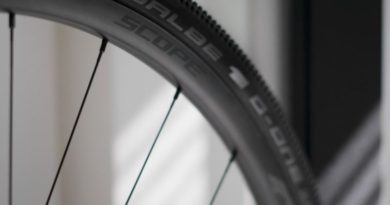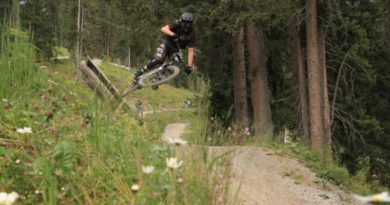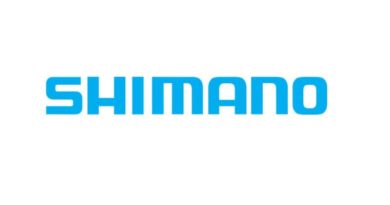Apidura: ‘No seasonality. No discounts.’ A business defining statement
In the current economic climate there are some things which make you pause and question what you accept as ‘normal’. Undeniably, there are businesses who see, “market disruption allow(ing) companies to distinguish themselves from competitors, create a unique niche and establish a dominant market position.”
British bikepacking luggage pioneer Apidura – founded in 2013 by Tori Fahey and Pierre Coeffe – set out to build a sustainability focused business, with sustainability as a source of resilience. As 2023 marks the brands 10 year anniversary, we explore sustainability as a business defining characteristic.
For our founder, Tori Fahey, an essential step in achieving this was to reimagine mainstream business practices that have guided our industry, and to consider how these could be shaped to better align with our values and to create a more resilient and sustainable business.
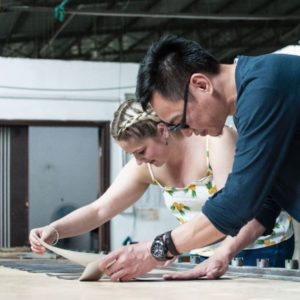 Among the foundational business principles that challenged established practices, were the following: No seasons. No discounts.
Among the foundational business principles that challenged established practices, were the following: No seasons. No discounts.
Mainstream business practices are built around introducing new product ranges on an annual or seasonal basis, driven by a “growth-led” business mindset. Although these seasonal changes occasionally involve advancements in technology or design, they are primarily “manufactured obsolescence”, creating an illusion of newness to generate consumer demand in order to meet arbitrary sales growth targets.
As a result, thinking they are upgrading to new designs or technology, consumers are encouraged to replace their products prematurely. The industry has responded to this trend by producing cheaper products with shorter lifespans, which in turn encourages early and frequent replacement.
Reducing the reasonable lifespan of a product by half doubles its environmental cost, since twice as many products need to be produced to achieve the same result. Meanwhile, companies rely on perpetual marketing, rather than product quality and innovation, to differentiate their products. In the end product margins get squeezed to unsustainable levels as consumer experience suffers, products converge and price becomes the singular dimension on which to compete. In short, this practice is harmful for the environment, for consumers – and also for business.

At Apidura, we believe that growth is not a goal, it’s a consequence of doing something well.
Rather than blindly driving growth by pushing artificial newness, we design and build our products to last. We invest in materials and craftsmanship. We test fabrics and trims in the lab, as well as in the field to identify vulnerabilities before production. This rigorous testing of components ensures that all parts of the product will endure the test of time. Our core objective is to create high quality products that will deliver superior performance, year after year.
We celebrate the spirit of our ‘Built to Last’ ethos through sharing stories of people and of their products that have stood the test of time and, in this way engage with our community to actively encourage others to prolong the lifespan of the packs that they own. This work helps our customers to have a deeper understanding of the value in the products that they buy from us, and helps Apidura to remain a differentiated and sought after brand in a noisy competitive landscape.
In place of a seasonal schedule to introduce changes to products, we take an “evergreen” approach to design. In other words, each SKU is able to “evolve” over time – it is evergreen – rather than being replaced or relaunched as something new or different and rendering prior versions prematurely obsolete.
We make our packs in small batches, which means we are able to integrate amendments to our designs incrementally, keeping each product perpetually up to date. Evergreen improvements are often brought about as we integrate advances in technology as well as insights from the research and development on new products. We also make a point to incorporate result of real-world feedback, as customers use our equipment in new and different ways.
 Our evergreen approach of bringing incremental insights and innovations back to our existing designs contributes meaningfully to Apidura’s commitment to build a more sustainable and resilient business. Firstly, it avoids the negative cycle of overconsumption (and significant resulting negative environmental impact) brought about by premature product replacement driven by manufactured obsolescence. Secondly, it means that Apidura’s focus can remain on meaningful product innovation and improvement, rather than colour trends or other transient and artificial drivers of consumer demand. This, in turn, helps Apidura to maintain its competitive edge, creating differentiated high-performance equipment that its customers can buy with confidence.
Our evergreen approach of bringing incremental insights and innovations back to our existing designs contributes meaningfully to Apidura’s commitment to build a more sustainable and resilient business. Firstly, it avoids the negative cycle of overconsumption (and significant resulting negative environmental impact) brought about by premature product replacement driven by manufactured obsolescence. Secondly, it means that Apidura’s focus can remain on meaningful product innovation and improvement, rather than colour trends or other transient and artificial drivers of consumer demand. This, in turn, helps Apidura to maintain its competitive edge, creating differentiated high-performance equipment that its customers can buy with confidence.
Another mainstream practice brought about by the conventional “growth-led” mindset is the use discounting and price manipulation to drive demand. Discounts can have a functional purpose; compensating for defects or other shortcomings. But the vast majority of discounts serve a single purpose, to encourage consumers to buy on impulse rather than need or merit.
As end-of-season sales become pre-season sales, businesses either need to artificially inflate prices to accommodate for the fact that the product will always be sold for less (cutting corners on design, quality, environmental and social standards). The result is a damaged relationship with customers and an unnecessarily harmful impact on the environment. It also hurts business resilience, as the short-term boost from discounting creates a long-term dependency on it – and a dishonest relationship with customers.
 From it’s beginning, Apidura made the decision to break from these conventions and pursue a different model; reducing resource use by fostering a culture that promotes conscious consumption. Instead, we offer the same honest pricing 365 days per year, allowing customers to consider their investment. Our gear is designed to be used and we actively encourage customers to ensure that any purchase with Apidura is a considered investment. We want our products to get used; to end up collecting dust on a shelf because of an impulse purchase is equally as unfortunate as it ending up prematurely in the landfill.
From it’s beginning, Apidura made the decision to break from these conventions and pursue a different model; reducing resource use by fostering a culture that promotes conscious consumption. Instead, we offer the same honest pricing 365 days per year, allowing customers to consider their investment. Our gear is designed to be used and we actively encourage customers to ensure that any purchase with Apidura is a considered investment. We want our products to get used; to end up collecting dust on a shelf because of an impulse purchase is equally as unfortunate as it ending up prematurely in the landfill.
Our evergreen approach to design and small batch production helps to reduce pressures or temptations to discount, because we have, by design, eliminated many of the challenges created by having excess seasonal or obsolete stock.
We believe that our honest pricing strategy helps us build a more resilient and sustainable business by establishing trust with our community. Consumers can buy with confidence, rather than on impulse. It also helps us create a more stable and accurate picture of consumer demand, which allows us to better adapt our product offering according to the real needs of customers (rather than a distorted picture created by manipulating demand).
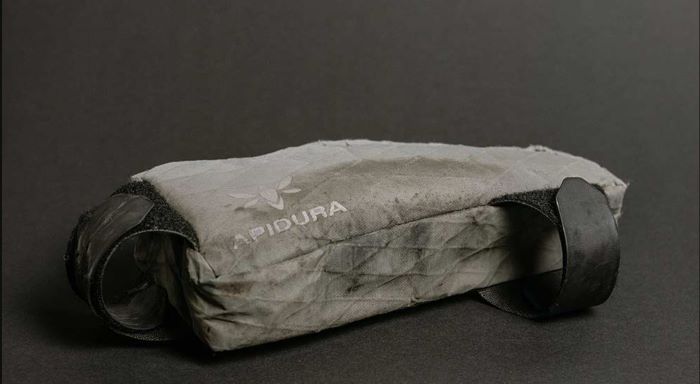
To find out more about the brand’s first Impact Report since becoming a B Corp certified business in 2022, click here.

